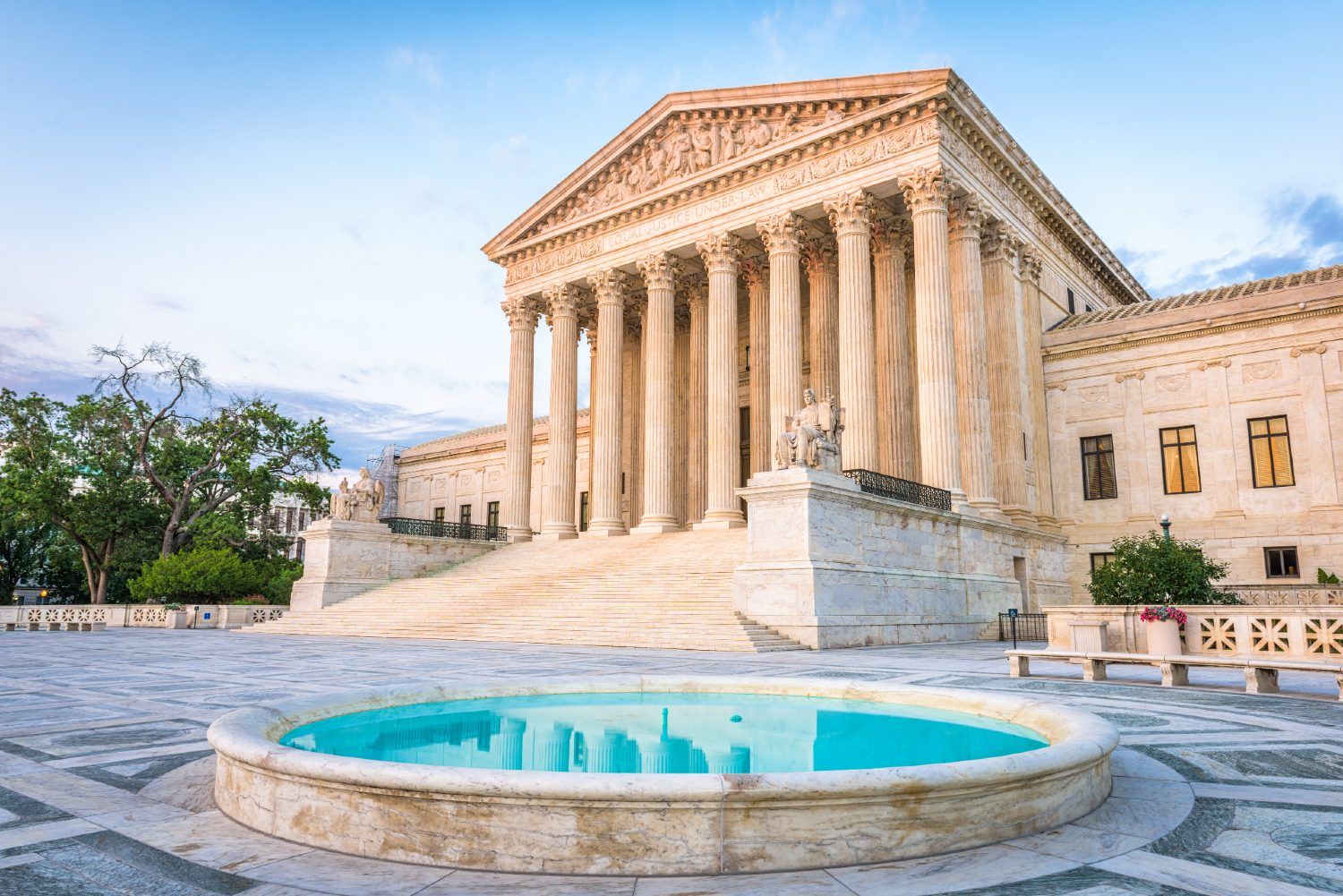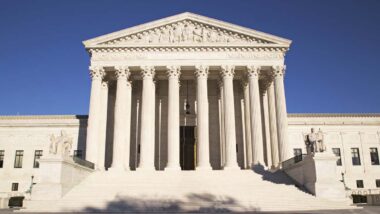Top Class Actions’s website and social media posts use affiliate links. If you make a purchase using such links, we may receive a commission, but it will not result in any additional charges to you. Please review our Affiliate Link Disclosure for more information.
Monday marked Day One of this week’s Senate Judiciary Committee hearings to consider the nomination of Amy Coney Barrett, a federal appellate judge, to the Supreme Court.
Despite urging by Democrats, including Democratic presidential nominee and former Vice President Joseph Biden, to delay a vote on Barrett’s nomination until after Election Day, Nov. 3, President Donald Trump is pushing hard for a Judge Barrett confirmation as soon as possible, and the Republican-controlled Senate seems keen on carrying out his wishes.
A vote is expected Oct. 29, the Associated Press reported.
If confirmed, Judge Barrett would fill the Supreme Court seat vacated by the late Justice Ruth Bader Ginsberg, giving the country’s highest court a 6-3 conservative majority — a change from the 5-4 majority it held during Justice Ginsberg’s term.
Judge Barrett, who is Catholic and a former University of Notre Dame law professor, has not spoken specifically since her nomination about how she would decide cases concerning LGBTQ rights.
However, her past speeches and writings detail her views on reproduction and sexuality, Vox reported in September, and these remarks have raised concerns among her critics that she will swing the balance of the Supreme Court toward a more conservative agenda on LGBTQ rights issues.
A strengthening of the court’s conservative faction, some critics and advocates say, could jeopardize recent legal successes for LGBTQ Americans, including the landmark 2015 case Obergefell v. Hodges, which upheld marriage equality nationwide.
What might happen to LGBTQ rights under a 6-3 conservative Supreme Court?
The value of LGBTQ civil rights could be debated in direct relation to the value of religious liberties. One important case LGBTQ advocates are watching is Fulton v. City of Philadelphia, which is scheduled to be heard the day after Election Day. The case involves a religious adoption agency seeking the right to turn away LGBTQ couples based on a religious-liberty argument.
According to a lawyer who is working as counsel to the city of Philadelphia on the case and who served on the Obergefell case, it is possible the court could create a precedent that allows taxpayer-funded organizations to discriminate against LGBTQ families.
“Freedom of religion is important, and it’s one of our nation’s fundamental values,” the attorney wrote in an op-ed in The Washington Post this week. “That’s why it’s protected by the First Amendment to the Constitution. But that freedom doesn’t give any of us the right to impose our beliefs on others, or to discriminate.”
Another important case, decided this June, saw the court extend Title VII protections to gay and trans individuals, determining that workplaces can’t discriminate on the basis of gender identity or sexual orientation.
It’s unclear how a Judge Barrett would decide on a similar case, or if her addition to the court gives the conservative majority any reason to re-examine its ruling.
What’s noteworthy, however, is that conservative Justices Neil Gorsuch and John Roberts joined the four liberal Justices — Ginsberg, Stephen Breyer, Sonia Sotomayor and Elena Kagan — in the majority opinion.
But on Oct. 5, Justices Clarence Thomas and Samuel Alito, who dissented in the Title VII case, released a statement expressing “ongoing disagreement” with Obergefell v. Hodges, the landmark same-sex marriage decision, “arguing that it stigmatized religious opposition to gay marriage,” according to Bloomberg Opinion columnist Noah Feldman.
“It is certainly likely that the current conservative majority will recognize exemptions from anti-discrimination law for religious groups like evangelical Christians,” Feldman argued in his column. “However, even after Justice Ruth Bader Ginsburg’s death, and even if Judge Amy Coney Barrett is confirmed, there are still five votes to protect gay and trans rights under most circumstances, including at work and in marriage.”
How do you feel about the nomination of Judge Amy Coney Barrett? Do you think she should be confirmed? Tell us what you think in the comments.
Read About More Class Action Lawsuits & Class Action Settlements:
4 Class Action Settlements Are Paying Out
Justice Dept. Accuses Yale of Racial Discrimination Against Applicants
Ethicon Stapler Lawsuit Claims Device Caused Surgical Complications

















One thought on With 6-3 Conservative Majority, Supreme Court Could Roll Back LGBTQ Rights
Roberts & Gorsuch just overrode the 1965 Civil Rights Act, & LEGISLATED from the bench in doing so, giving transgenders employment protections proving they are far from “conservative”. So take your ridiculous fear mongering leftist BS & peddle it to Mother Jones or the Washington Post.